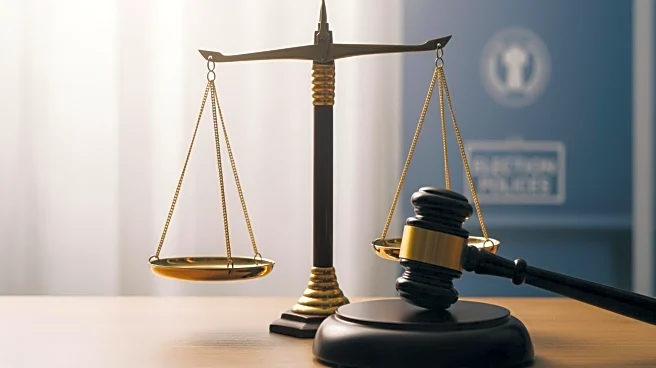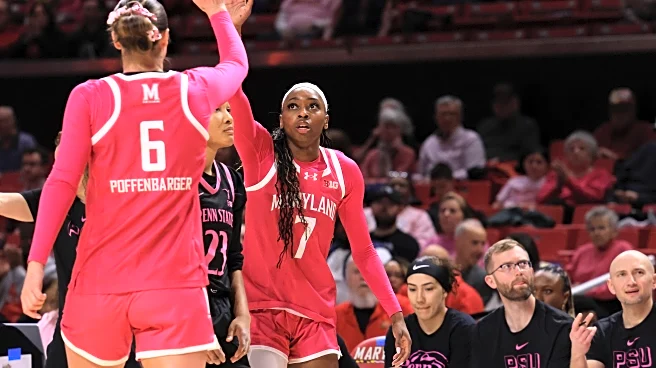What's Happening?
A federal judge has permanently blocked a portion of an executive order issued by President Trump that required voters to provide proof of U.S. citizenship, such as a passport, to register to vote. This decision was made by U.S. District Judge Colleen
Kollar-Kotelly in Washington, D.C., following lawsuits from groups including the Democratic National Committee and the League of United Latin American Citizens. The executive order, issued on March 25, aimed to overhaul federal election processes. While the judge blocked the citizenship proof requirement, she did not block the part of the order that prevents states from counting mail-in ballots received after Election Day. The American Civil Liberties Union, representing the League of Women Voters, celebrated the ruling, emphasizing the importance of accessible voting rights.
Why It's Important?
This ruling is significant as it addresses the balance of power between federal and state control over election processes. By blocking the requirement for citizenship proof, the decision reinforces the constitutional authority of states to oversee elections, potentially preventing federal overreach. The ruling also impacts voter accessibility, particularly for those without current passports, ensuring that financial barriers do not impede voting rights. This decision may influence future legal interpretations of executive power in election-related matters and could affect voter turnout and engagement, especially among minority and low-income communities.
What's Next?
The ruling may prompt further legal challenges or legislative actions as stakeholders, including political parties and civil rights organizations, continue to navigate the complexities of election laws. The White House has not yet commented on the decision, but potential appeals or revisions to the executive order could be considered. Additionally, this ruling may influence ongoing debates about voter ID laws and election security, with possible implications for upcoming elections and policy discussions at both state and federal levels.
Beyond the Headlines
The decision highlights ongoing tensions between federal authority and state rights in the U.S. electoral system. It underscores the legal and ethical considerations of voter identification laws, particularly concerning disenfranchisement risks. The ruling may also contribute to broader discussions about election integrity and the role of misinformation in shaping public perceptions of electoral processes. As debates continue, this case could serve as a precedent for future legal challenges to executive actions perceived as overstepping constitutional boundaries.















